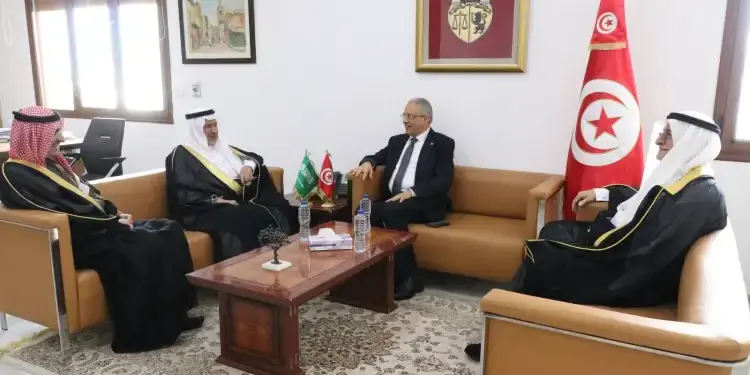Tunisia is in the midst of negotiations with several European countries, from the Gulf as well as with Canada in order to lead to mutual recognition agreements. The objective is to allow Tunisian citizens residing abroad to more easily replace their Tunisian permits with local permits.
During a ceremony organized Thursday at the Embassy of Saudi Arabia in Tunis, the general supervisor of the King Salman Center for help and humanitarian action, Abdullah al-Rabeeah, announced a series of donations and initiatives in favor of the health sector in Tunisia.
Among the actions planned, the center will provide ten latest generation dialysis devices, as well as a water desalination station fueled by solar energy. The Saudi center also provides for the sending of medical and paramedical missions to carry out interventions of pediatric cardiac surgery and ophthalmology.
At the end of a three-day visit to the head of a group of volunteers, Al-Rabeeah praised the success of a humanitarian initiative led by the center, consisting in the realization of 50 cochlear implantation operations for the benefit of Tunisian children with hearing impairment. He said this action is part of the directives of the Saudi authorities.
He also recalled that Tunisia is a new stage in the “Sama ‘Saudi” program (Saudi hearing), launched in 2018 to support medical and humanitarian campaigns, including cochlear transplant operations intended to restore hearing to thousands of children around the world. This program has already been deployed in disaster areas such as Turkey and Syria, where 66 surgical interventions were carried out in a single day, a feat qualified as “exceptional”.
Abdullah al-Rabeeah also revealed that the Tunisian health authorities have expressed their desire to benefit from Saudi medical expertise, especially in the fields of heart surgery, bone marrow transplant and ocular surgery. The King Salman Center responded favorably to this request and said it will provide the necessary support.
For his part, the Director General of Health in Tunisia, Abdelrazzek Bouzouita, stressed that this visit is part of a program of volunteer and exchange of expertise between Tunisia and Saudi Arabia. He said the first day of the visit was marked by an exchange meeting on governance in the health field.








